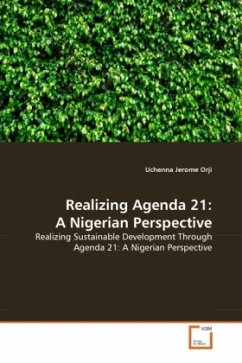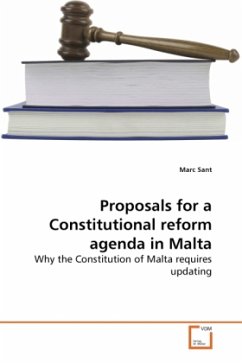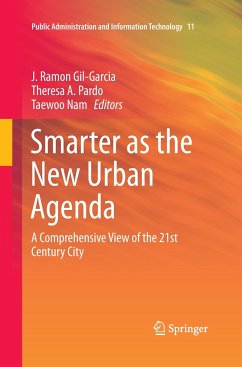
Realizing Agenda 21: A Nigerian Perspective
Realizing Sustainable Development Through Agenda 21: A Nigerian Perspective
Versandkostenfrei!
Versandfertig in 6-10 Tagen
32,99 €
inkl. MwSt.

PAYBACK Punkte
16 °P sammeln!
During the 1992 United Nations Earth Summit in Rio de Janeiro, Brazil, 178 countries adopted Agenda 21 as a non binding global environmental plan for sustainable development.The document underscored the important role of States in the implementation of sustainable development at the national level and also serves as a blueprint for governments in the implementation of sustainable development.This work examines the implementation of sustainable development in Nigeria within the framework of Agenda 21. It suggests inter alia that corruption and insufficient public participation are some of the m...
During the 1992 United Nations Earth Summit in Rio de Janeiro, Brazil, 178 countries adopted Agenda 21 as a non binding global environmental plan for sustainable development.The document underscored the important role of States in the implementation of sustainable development at the national level and also serves as a blueprint for governments in the implementation of sustainable development.This work examines the implementation of sustainable development in Nigeria within the framework of Agenda 21. It suggests inter alia that corruption and insufficient public participation are some of the major obstacles to the implementation of the sustainable development objectives of Agenda 21 in Nigeria. To enhance the realization of the objectives of Agenda 21 in Nigeria, the author recommends inter alia the establishment of a constitutional right to sustainable development alongside inter generational rights and the recognition of the public trust doctrine as well as the adoption of budget analysis. This work will be useful to Students of development law.It will also be of interest to any person interested in learning about the implementation of sustainable development in Nigeria.












